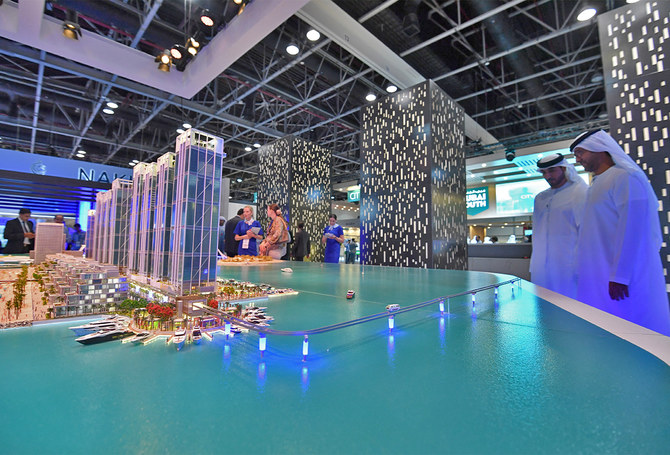KARACHI: DAO PropTech, Pakistan’s first blockchain-based real estate platform, has attracted investment commitments worth around Rs500 million ($2.2 million) by showcasing its innovative digital ledger system at a property exhibition held in Dubai last month, company officials said on Monday.
The fourth edition of the Pakistan Property Show was held at the Dubai World Trade Center in the second week of September. It was attended by more than 20,000 visitors, including Pakistanis living in the Emirates.
“The experience and response in Dubai was overwhelming for us because of our system and we have received pledges worth Rs500 million from overseas Pakistanis,” Muhammad Yahya Chaudhry, a partner and head of marketing at the PropTech decentralized autonomous organization (DAO), told Arab News in an interview on Monday.
“The system offers a solution to the concerns of overseas Pakistanis who want to invest in Pakistan, but are reluctant due to lack of transparency in real estate dealings.”

DAO PropTech team poses for a picture at Pakistan Property Show at the Dubai World Trade Center in UAE on September 18, 2022. (DAO PropTech)
Formed in 2020, the DAO PropTech real estate investment platform claims to be the first of its kind in Pakistan that enables every Pakistani to invest in real estate as per affordability, promising unmatched transparency, a scientific pricing methodology that ensures added value is transferred to the end user, real-time construction tracking, and a personalized portfolio dashboard.
There is a huge demand for real estate investment in Pakistan from expats but lack of transparency, including timely delivery, makes it difficult and discourages them to invest in their home country.
“Overseas Pakistanis were much concerned about the transparency of projects in Pakistan due to bad experiences of their relatives or themselves while investing in Pakistan,” Chaudhry said.
“However, we addressed their concerns through our 100 percent digital system that offers utmost transparency.”
Participation in the Dubai property expo was the first appearance of the company outside of Pakistan which, according to Chaudhry, allowed them to introduce a decentralized real estate investment platform abroad.
Chaudhry said the platform connects developers and investors for a project that makes it to the platform after a thorough vetting process.
“We have some 72 different scoring matrix – we look at the project through different lenses, including demand, need, actual value, transaction value, history of developers and its legal backing,” he said. “We call it an institutionally qualified project.”
The South Asian nation is facing a housing shortage but the actual required number of homes remains controversial. Some figures, quoted by the World Bank, suggest that Pakistan is facing a deficit of 10 million housing units, while the Pakistan Credit Rating Agency (PACRA) put the number at around 35.30 million, based on the current and projected population, in its report released in May.
However, the Pakistan Institute of Development Economics (PIDE) in June ruled out the shortage of housing in Pakistan: “There may be ‘inadequate housing’ in the country, but not ‘housing shortage.’ The deficit is in the quality of life in the houses, not the absence of housing units.”
In Pakistan, Chaudhry said, the average age to own a first home is 55 years as compared to the other developed countries, where a young person can buy their first house at 26-30 years of age.
“With proper planning and utmost transparency, housing and other real estate solutions could be provided to investors. If we empower investors to take decisions on the basis of information that could address investment concerns in Pakistan to a large extent,” he said.
“Many buildings are laying vacant because the purpose of the construction was to invest to reap profits instead of constructing buildings as per requirements.”
A substantial contribution to the South Asian economy comes from the real estate sector that was around 5.4 percent of the gross domestic product (GDP) in the fiscal year 2020-21, according to PACRA.


















